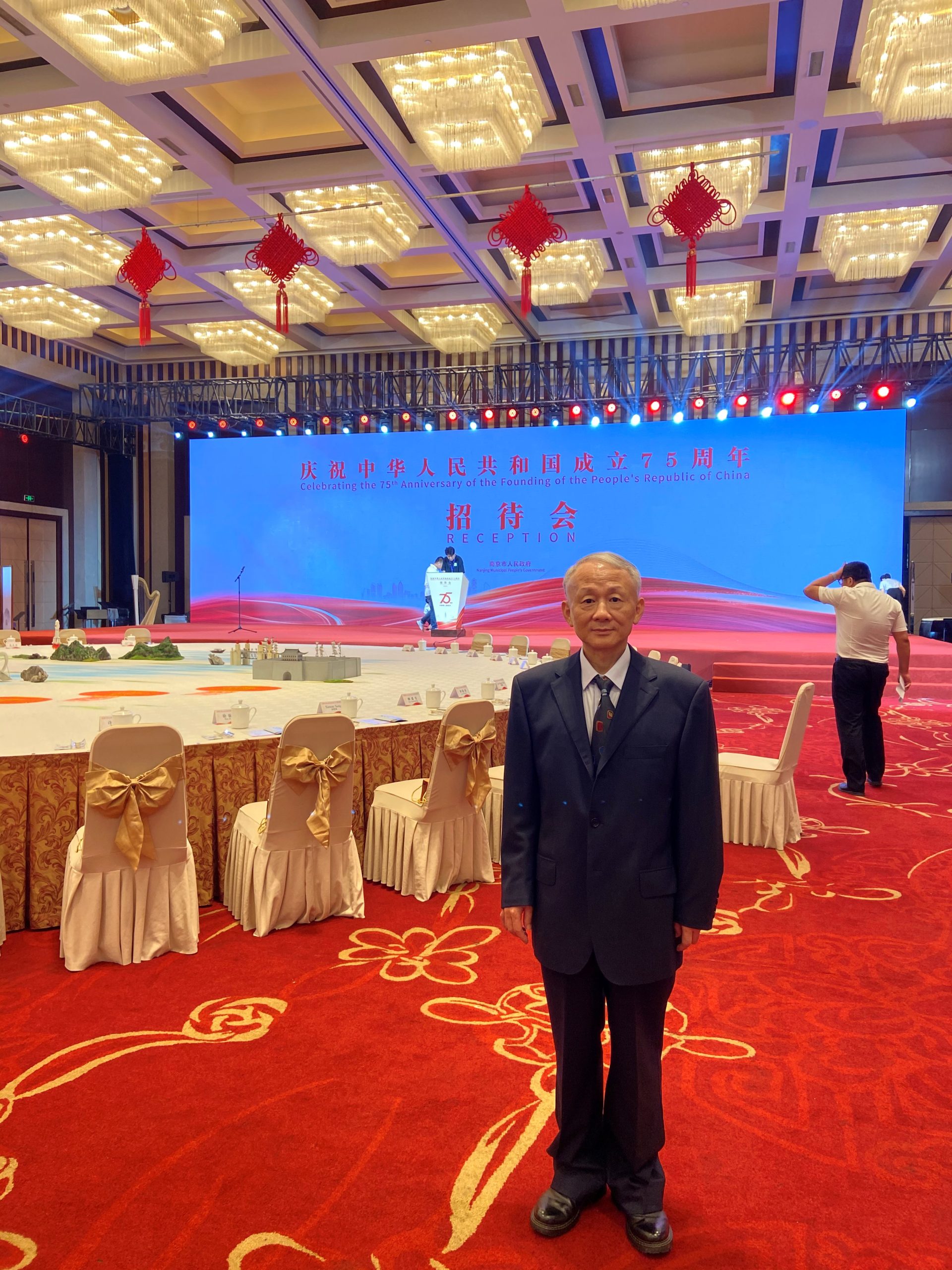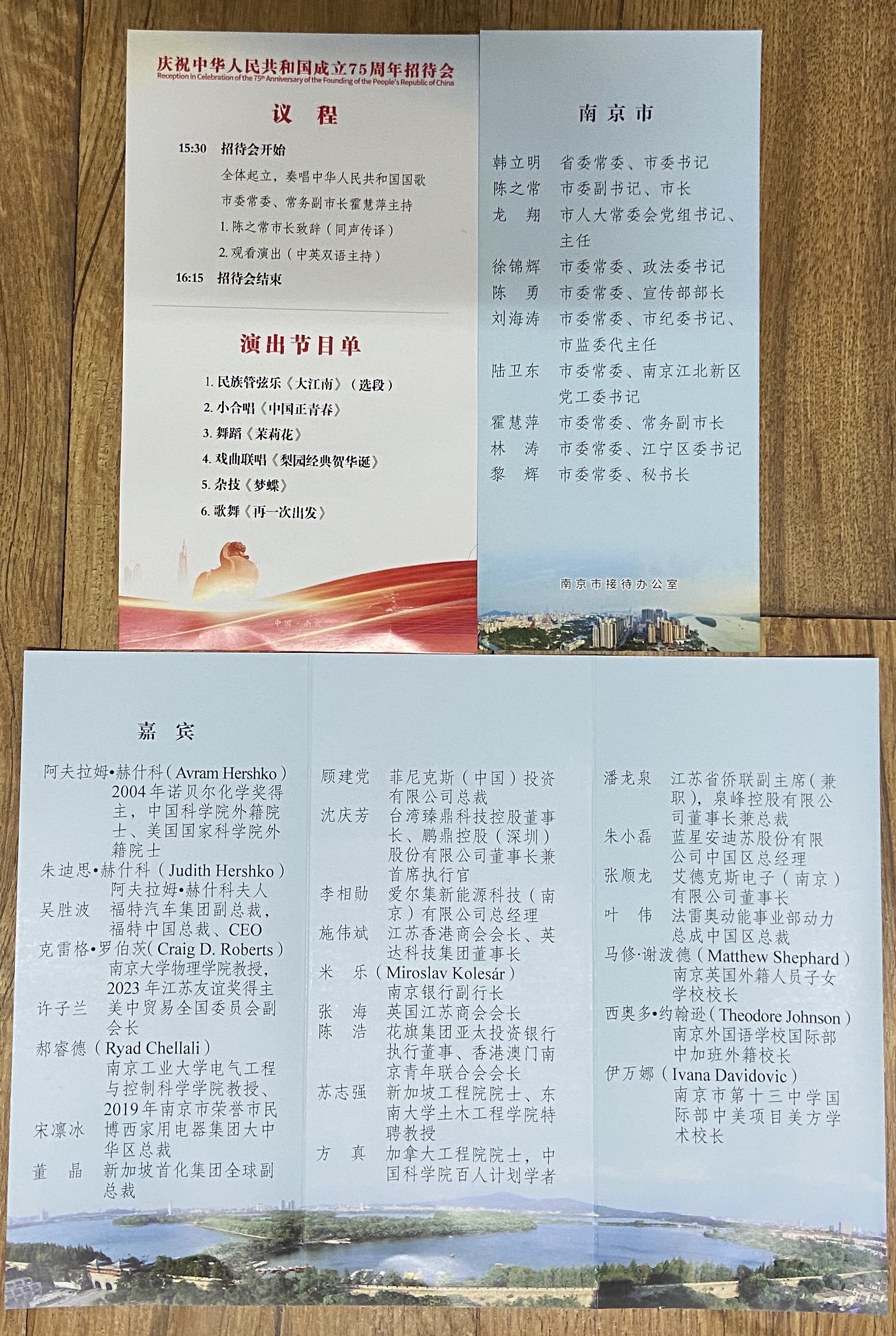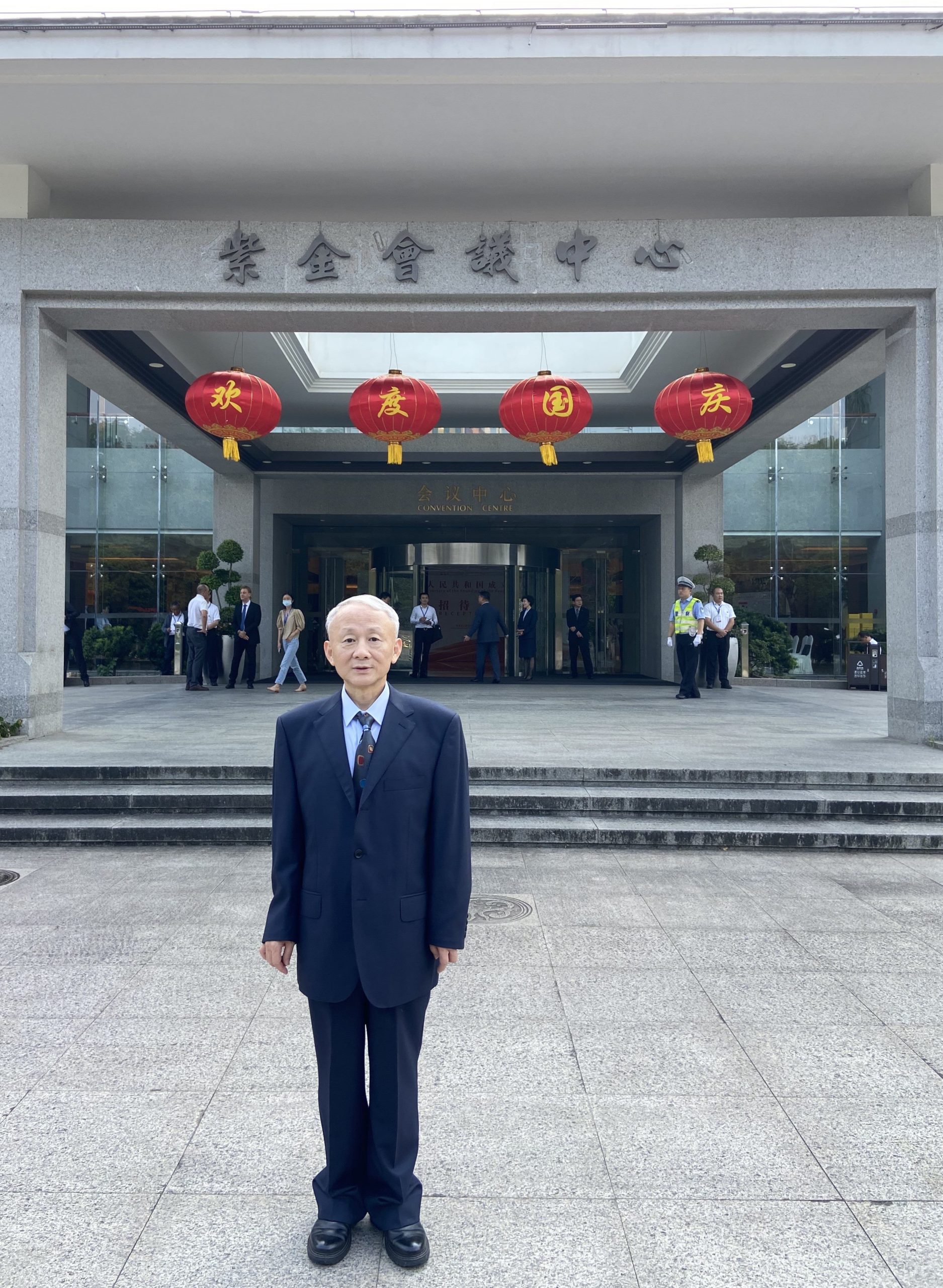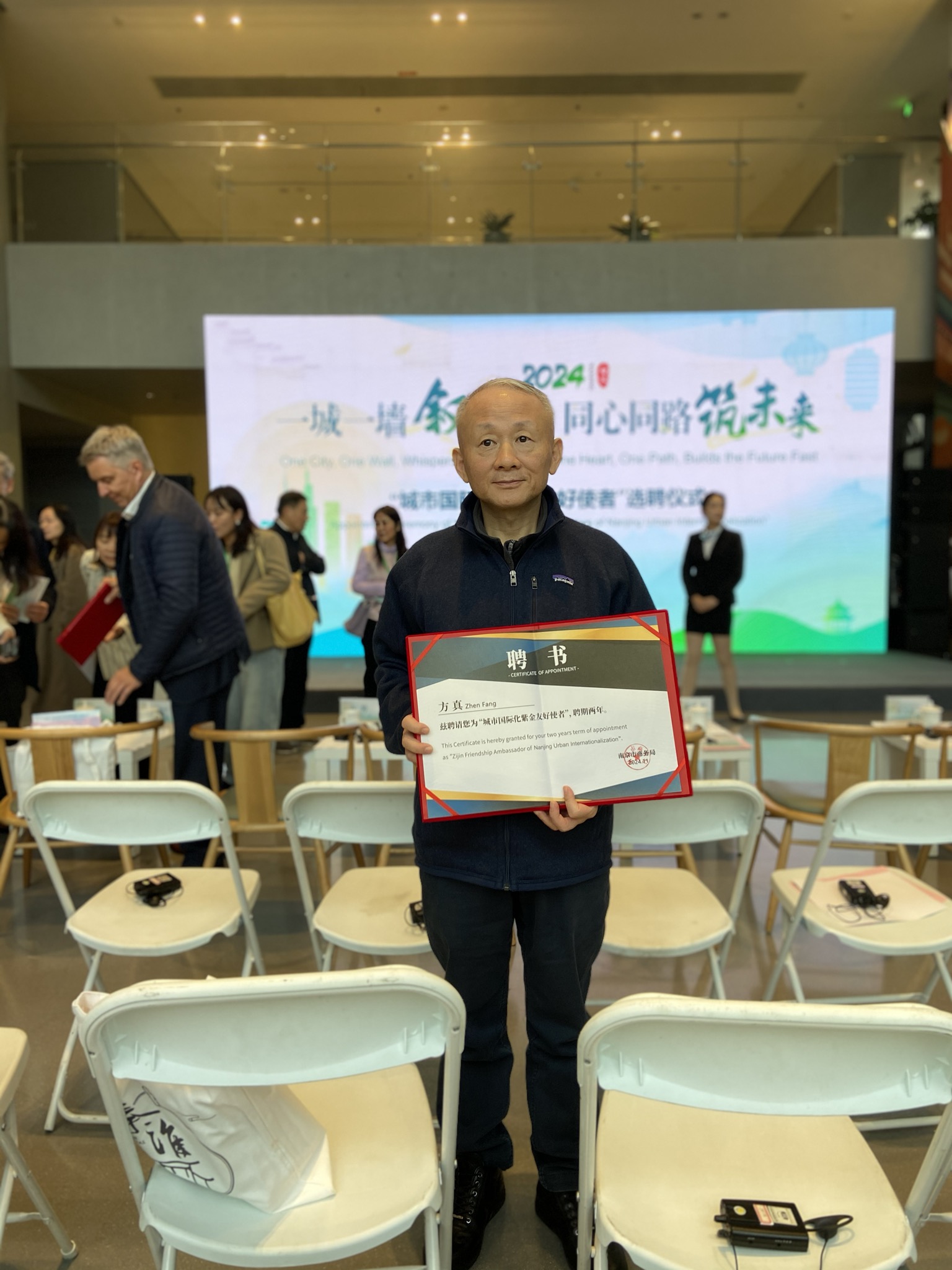2024国庆Prof. Fang Invited to the Celebration of the National Day of China in Nanjing
4 10 月, 2024On Sep. 30, 2024, Prof. Zhen Fang was invited to the Celebration of the 75th Anniversary of the Founding of the PRC in Nanjing.

方真教授参加南京国庆庆典Prof. Zhen Fang attended the Cerebration of National Day in Nanjing

领导和嘉宾Leaders of Nanjing City and Guests

紫金会议中心Cerebration at Zijin Conference Center in Nanjing

紫金友好使者Purple Gold Goodwill Ambassador of Nanjing